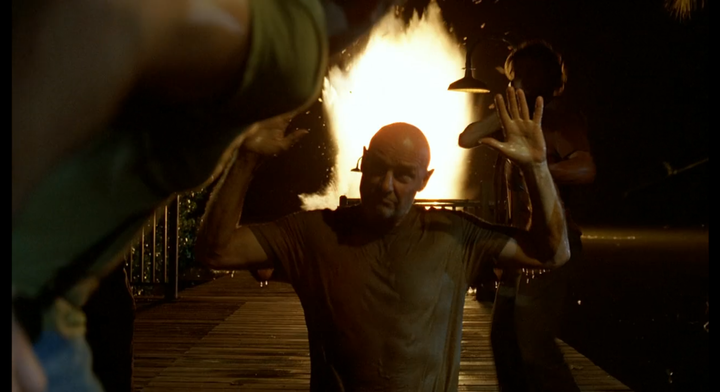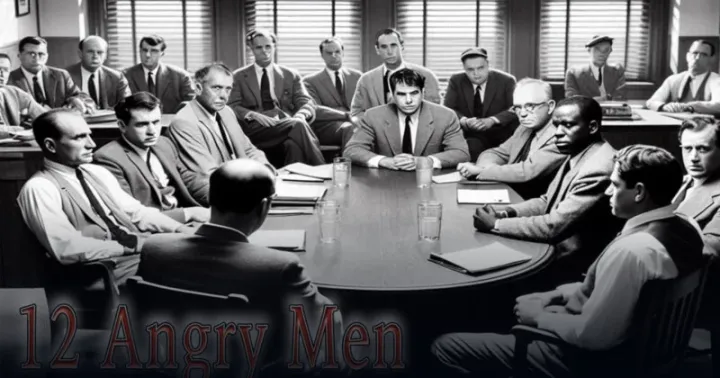The Tolerance Of Intolerable Things
A (probably recurring?) feature, in which I use the newsletter format to expand upon a single tweet from last week.

Note: this essay was originally published on Revue on September 27, 2021.
Hello my friendlies.
Well it’s another day in paradise, by which I mean another day in which I am trying to figure out how to feel about still being one of the lucky privileged living in relative comfort and ease, in a country where billionaire propagandists and their well-heeled governors decide to create massive ongoing public health disasters in order to satisfy the worst impulses of the most solipsistic of our neighbors; decisions which will gobble up the time and energy and well-being and frequently even the lives of thousands and thousands of people who did nothing worse than living in a place where malice holds sway, and whose effects the rest of us are apparently expected stand by politely and watch, because while yes its true that many thousands are being deliberately killed by selfish intent and abusive policy, “woke” social-justice-cancel-culture is out of control, and incivility and divisiveness is a crime far more offensive than any crime you can imagine, including I guess 700,000 dead, and us protesting a governor committing open and proud widespread civic manslaughter is exactly what makes people want to vote for a governor committing open and proud widespread civic manslaughter.
See this is what a newsletter does for me. You can’t write sentences that long on Twitter. Over here I can expand.
It strikes me this was a bit of a downer as run-on sentences go. My hope is to give you something at least marginally encouraging by the end. Let’s see if I can land this sucker, even if it turns out to be a crash landing.
The reason I started with such a sentence is that, in the interests of expanding, I’m expanding upon a single tweet I wrote last week.
Here’s the tweet:

A.R. Moxon
@JuliusGoat

One thing that the pandemic has clearly exposed is the conservative belief that preventable mass death is not only *normal* but *good*, and how much of their grievance stems from their resentment that the rest of us think that's bad, and that they should behave differently.
8:25 AM - 25 Sep 2021
I do wonder about where the limits to this are. We’re well into a world of normalized sabotage of the general wellbeing, with the full-throated approval of a large but vocal minority composed mostly of Republicans and Evangelical Christians and white supremacist organizations. Apparently the only thing that stops governors from behaving like the Joker in a 60s Batman movie is that no governor had ever wanted to … or maybe they have been doing so all along and I just was too privileged to notice. Certainly in my own state a governor can give a state’s water away to a slave-holding corporation like Nestle to sell back to its residents, and has done so. Can a governor choose to poison the reservoir of a quote-unquote less profitable area? Would you believe that the same governor did? If a governor decided to blow up a dam beside a city, on the grounds that we are a brave people and you can’t live in fear of drowning, or based on a deeply-held religious conviction that people should have to swim to work, or because “many people” just aren’t convinced by the science on whether people can breathe underwater and think people should be free to decide for themselves, or just out of a desire to flood certain neighborhoods, who would stop them?
Who could?
It has to be said: there appears to be no political apparatus to counter or punish a political party that wants to manufacture disaster, or else those who control those levers of power seem to lack the will or the ability to throw them. And if you know what the practical difference is between those two options, please tell me.
So then it comes down to us to change things. It’s up to me, it’s up to you. Which, if you’re like me, might feel demoralizing more than empowering.
What can we do?
I know what we’re expected to do.
We’re expected to protest politely and above-all unobtrusively, in spaces set aside for such things, at times pre-approved; or, even better, to debate people about whether or not creating disaster for others is a good thing or a bad thing; or, best of all, to stand by and watch once again, as our courts and lawmakers and chief executives and law enforcement shrug, and another series of checks and/or balances fall over with a hollow click like a couple of mis-set dominoes that were placed too widely apart to have any cause or effect in the chain. And we’re expected to listen to media figures who seem to have stopped reporting what is and have instead started trying to predict how will this be perceived? I can see Chris Cillizza covering the deliberate flooding of Tallahassee as if it were a horserace: As Death Toll Reaches 1 Million, We Ask: Will Drowning A Major City In His Own State Hurt Ron DeSantis’ 2024 Presidential Hopes?
And hey whatdyagonna do? they’ll ask. Governor DeSantis can flood a city in his state if he wants to; Republicans control the Florida House and they’ll never vote to impeach, and 40% of the people in their gerrymandered state who want to murder the other 60% add up to just enough votes to give them permanent majorities and you wouldn’t want to just discount the wishes of the 40% would you? that’s what an authoritarian does— so you’ll have to wait until next year, when you can try to vote them out of their districts, which are shaped like unspooled garden hoses left splayed across the front yard by a distracted teen— provided, of course, that next year they still agree to abide by the results of the election, which they seem increasingly unlikely to do, since elections have become an even more dicey proposition for them even with their advantages of vote suppression and gerrymanders, now that so many of their voters have gotten themselves, well, drowned. Meanwhile, click this link to raise money to send snorkels to the people of Tampa, because Ron DeSantis has promised to flood them out next, but he refuses to close the schools and he’s promised to fine anybody seen buying a raft or a sandbag.
And a mildly observant observer might be tempted to ask: how is this possible? How is it that a governor is permitted to behave like a comic book supervillain with total impunity, and representatives tasked with checking him instead act like his henchmen? Why are they not only permitted to do so, but apparently incentivized to?
Why were our leaders permitted to behave this way on a national level, more than once? Why are they likely to be given the opportunity to do so again? Why do those among our leaders who talk about solving these problems refuse to bring them to consequence when they have the power to do so?
The inescapable conclusion is distressing: because millions of people want them to behave that way, and millions of others are willing to let them.
The ones who want them to behave that way are distressing, for sure. It’s the ones who are willing to let them that I can’t stop thinking about, because that category too frequently includes me.
The thing about a pandemic is, it pulls down a bunch of curtains. You see how things stand. You could have seen before, of course, and a lot of people did see before, and tried to warn the rest of us, but those curtains masked the truth if you knew where to stand and didn’t try to peek. Now the only way you can’t know is if you’ve closed your eyes.
The way things stand is: our systems are not designed for the public good, but to profit off the public. And if something arrives that forces a choice between preventing millions of deaths or temporarily slowing the profit, it won’t even be a choice. Nothing stops the machine.
But the worst of it is that we can also see that millions of people clearly knew this all along and aren’t bothered. They want it this way, and we have to conclude from their reactions, they always did. When the chips are down, you see what people are like when the chips are down, and then you know.
My children are high school age. Their friend caught Covid. My kids report that she was vaccinated, which she had to accomplish without her parents’ knowledge. She also had to get tested without her parents’ knowledge. That’s how her parents make her live, and she sure isn’t the only one.
My cousin is a high school teacher. He’s tasked with enforcing mask mandates. He reports that about half the children in the school are openly defiant of this, and tell him to his face that their parents have instructed them to behave this way. That’s how he is forced to do his job, and he sure isn’t the only one.
I read the news. A group of protesters crashed a Staten Island mall food court, protesting the idea of vaccine mandate and chanting “USA” as if vaccines were somehow incompatible with their version of The American Dream®. A couple who want to protect their immunocompromised infant are asked to remove their masks or leave.
And of course the daily reports of hospitals clogged far past the point of danger, beds full of people who claimed to be too suspicious of modern medicine to engage in basic prevention, who suddenly saw the light as soon as the reaper they’d thought to send after others came boomeranging back to them, suddenly arrive to demand healing, which—because hospitals actually believe life is worth saving for the sake of life—they receive.
And, if you’re like me, the thought comes: These people aren’t skeptical about the pandemic—they believe in it. They’re counting on it. They’re on the side of pandemic.
This means they’re actively on the side of disaster—for others, they think. For them, disaster for others is not just the natural order of things, but the preferred order, one for which they’ll willingly fight; one for which they are prepared to enact violence themselves if those who hold the levers of power refuse to enact it on their behalf. And so with police brutality, and so with gun regulation, and so with climate catastrophe. They’ll risk themselves, their children, their community, all to make sure other people go on doing the dying for them while they are allowed to do exactly as they please without responsibility or consequence.
They’ve got what they want. They don’t seem happy.
We are to blame for their unhappiness. Ask them, they’ll tell you.
Their grievance seems born of a deep-set belief that the mass death of other people is not only normal but preferable, and a mighty impatience with anyone who would expect them to behave otherwise. Because, if enough others expect them to behave otherwise, then they’d be forced to pay some sort of cost, if only a reputational cost, for behaving in the antisocial and violent ways they think of as their freedoms. And if the cost became too high, then they might have to behave as if they believed other people exist.
So, their demand is that we all tolerate intolerable things.
The reason we’re expected to tolerate intolerable things should be clear, and it’s highlighted by how violently angry any hint of intolerance makes them. Simply put, our tolerance of these intolerable things appears to be the answer to the question: how?
How is this possible? In part, because it’s tolerated by enough still-comfortable, still-unthreatened people that it reaches the point of possibility.
Not that we desire intolerable things, but that we are willing to tolerate them.
We? Me.
Willing to debate the matter with them as if it is something worthy of debate. To stand by and watch and murmur but maintain civility. To fear the costs of the work of justice more than we fear the neglect and menace and murder of our brothers and sisters. To parse the motives of people literally fighting for their lives, and to withdraw our support if their efforts aren’t peaceful enough or polite enough to suit our comfort. To give into the hopelessness that nothing any individual can do can have an effect, which is the flip side of the belief that society doesn’t exist.
Why do we (we? I) do this? I suspect it’s because there’s a reputational cost to intolerance, which is to be seen as intolerant. The most lauded state of mental being in many circles, I’ve learned, is to be seen as dispassionately reasonable in the face of any situation, even (especially?) intolerable ones; to only consider solutions to the problem that are realistic, by which we mean solutions that above all do not disrupt the way things currently are, solutions that everyone—both those who want the problem solved and those who want to cause the problem—will agree to, and this acceptance of unacceptable things is, we’re told, what it means to be a practical and serious-minded person. There is a powerful, almost tidal social current encouraging us to above all seem reasonable, and thereby be considered serious by accepting whatever is on the menu to be accepted, and to always decline to be outraged about outrages.
I know this current is real, because I feel it.
It’s a current that makes intolerable things possible, even inevitable.

Thomas Chatterton Williams
@thomaschattwill

The hard left––not liberals, to be clear––is fundamentally childlike insofar as it fuels itself and its fury on a vision of some future state of purity that can by necessity never be achieved.
The very foundation of adulthood is the acceptance of compromise and imperfection.
2:25 PM - 31 Oct 2020
By tolerating intolerable things, we give our tacit agreement that intolerable things are “the way things are,” and we agree that the only realistic solutions should be considered, by which we mean “solutions that do not change the way things are.” We find ourselves addressing symptoms, not the causes. And so, we agree that intolerable things are possible. And so, tolerable things become not only possible, but inevitable.
That’s my word for today. Refuse to tolerate intolerable things, and refuse to tolerate the values of those who would tolerate them.
If you’re like me, this will feel like pissing into the ocean sometimes; that is to say useless and a little embarrassing. It may seem a little abstracted and not practical enough. And indeed there exist more practical things you can find to do, and you should find them—but it strikes me that the practical things that can be done are usually situational and specific to your community, your environment, and your skills, but all of these actions, and even the drive to seek them out, begin with a simple generative determination to stop tolerating intolerable things, and to be willing to be seen as biased, divisive, histrionic, simplistic, annoying, impractical, unrealistic, childishly utopian.
Think of it this way:
If all of these things can happen at least in part because enough still-comfortable people are willing to tolerate them, it follows, then, that enough still-comfortable people refuse, it will become harder to enact intolerable things.
And you are a person. The question (which I am asking myself) becomes: to what degree are you still comfortable?
Maybe intolerance of the intolerable doesn’t do anything, but I can’t help but notice—those who want to bring about intolerable things sure seem to think it does something. They fight it harder than anything else.
I think what intolerance does is this: raises the cost—reputational, social, economic—of doing business. And these are people who more than anything hate paying costs.
What’s needed I think is a hostility of a particular kind. A hostility that focuses on intolerable propositions. A hostility to unacceptable values of “how things are,” which might change the landscape of what is possible and realistic.
So, begin with the simple word: Refuse.
Refuse to tolerate intolerable things. And refuse to tolerate the values of those who would tolerate them.
Pay the social price that exists—and there will be a price, even if only a reputational price—for showing hostility to intolerable premises.
Be unrealistic. Be intolerant. Be hostile. Be the problem to the problem.
Start there, and learn what it looks like for you.
It’s a fight, but it’s a good fight.
It’s the good fight.
Let’s fight it.
-Andrew
_______________________
A.R. Moxon is the author of The Revisionaries, which is available in most of the usual places, and some of the unusual places. He loves you very much.




Comments ()